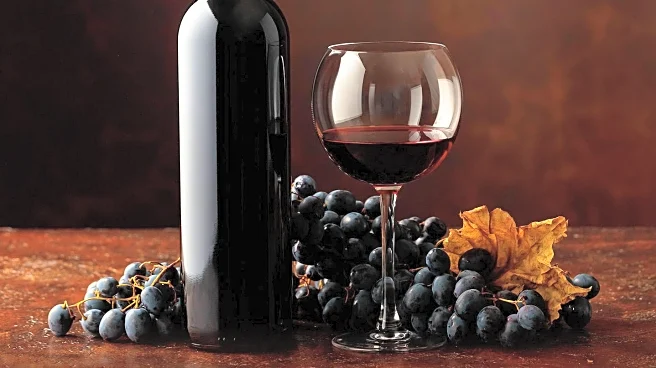What's Happening?
Dr. Zac Turner has revealed that consuming wine before bedtime can significantly disrupt sleep quality. While wine initially acts as a sedative due to its effect on the brain chemical GABA, the liver's processing of alcohol reverses this effect, leading to increased alertness and restlessness during the night. This disruption affects rapid eye movement (REM) sleep, which is crucial for memory, learning, and mood regulation. Additionally, the breakdown of alcohol produces acetaldehyde, a toxic by-product that further deteriorates sleep structure. Other foods and drinks such as dark chocolate, spicy foods, and caffeine-containing beverages are also advised against before sleep due to their potential to cause wakefulness and indigestion.
Why It's Important?
The findings underscore the importance of understanding how alcohol and certain foods can impact sleep quality, which is vital for overall health. Poor sleep is linked to increased risks of obesity, depression, and cardiovascular disease. By identifying and avoiding these sleep disruptors, individuals can improve their sleep quality and, consequently, their health. This information is particularly relevant for those who struggle with sleep issues and are unaware of the dietary factors contributing to their condition.
What's Next?
Individuals are encouraged to reconsider their nighttime habits, opting for calming caffeine-free teas and lighter evening meals to enhance sleep quality. The advice also suggests reserving wine for daytime consumption rather than as a nightcap. This shift in habits could lead to improved sleep and better health outcomes over time.
Beyond the Headlines
The broader implications of this advice highlight the need for increased public awareness about the impact of lifestyle choices on sleep and health. As sleep quality is a critical component of overall well-being, understanding these factors can empower individuals to make informed decisions that promote healthier living.











